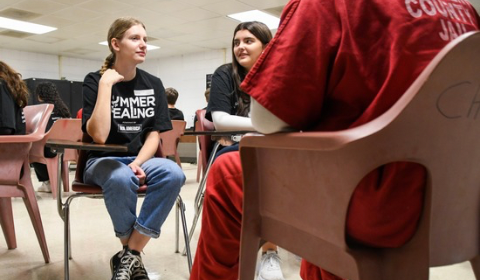As a first-year McAnulty College of Liberal Arts student, you will be a part of a Residential Learning Community. Learning Communities foster an environment where new students can successfully transition to college life, both academically and socially. Students benefit from learning and living alongside peers who share their interests and working closely with faculty in small-group settings.
Each Learning Community cohort takes two thematically-related courses together in the fall semester. On-campus students also live together on Learning Community-designated residence hall floors. Explore each of our learning communities to determine which is the best fit for you.
Learning Community Goals
- Help students learn to make connections between fields of study
- Promote the development of skills and habits that will prepare students for their academic career
- Encourage collaboration among students and between students and instructors
- Help first-year students in the College find friends and study companions
- Create a sense of identity and unity among students in the College of Liberal Arts
With a focus on small groups of students, communities quickly form their own identity. Each community has a Latin name that captures its emphasis and focus. Every community class satisfies either a McAnulty College of Liberal Arts or Bridges Common Learning Experience (CLE) requirement.



